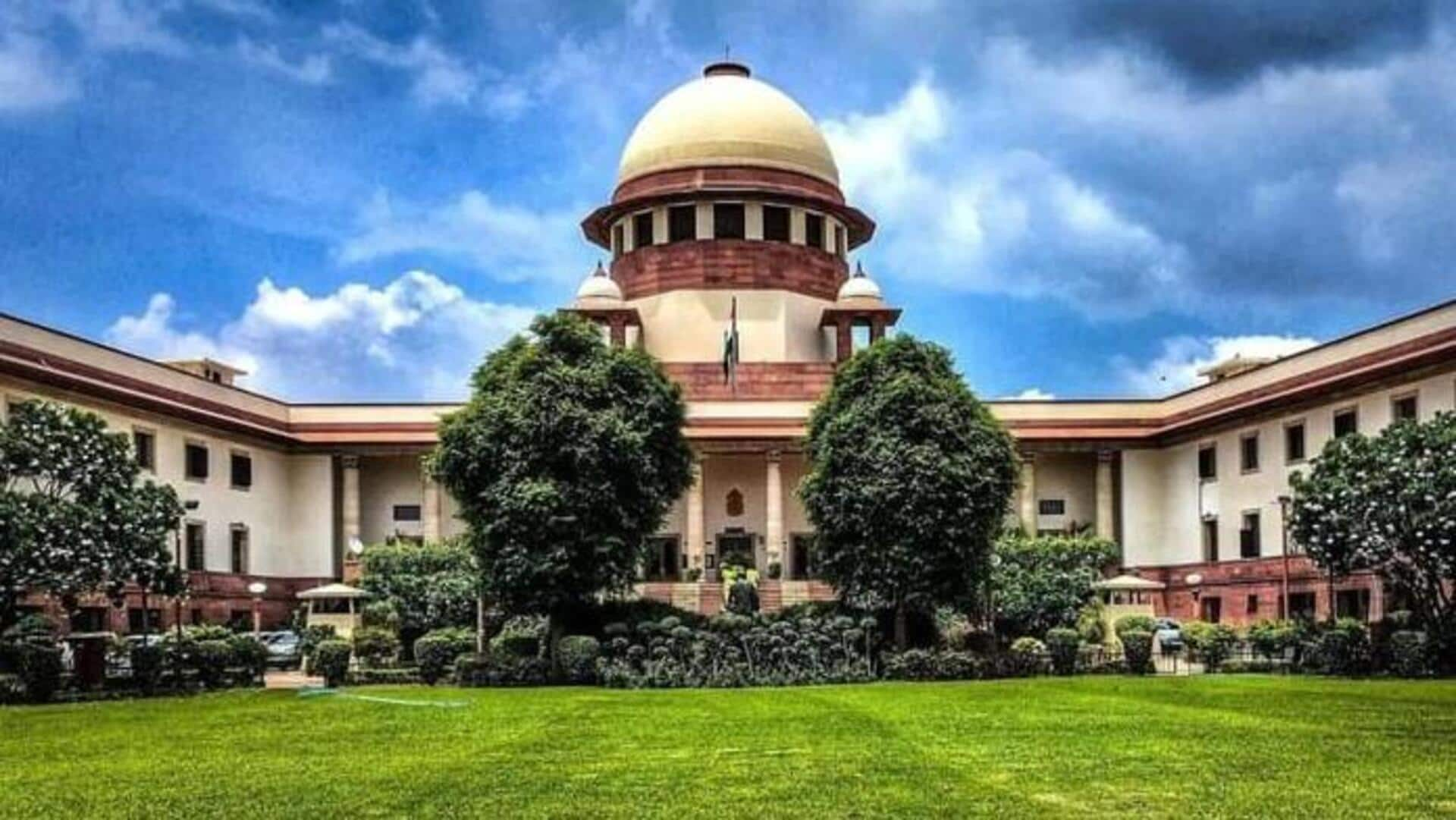
SC transfers electoral bond scheme case to Constitution bench
What's the story
The Supreme Court has referred all public interest litigations (PILs) challenging the validity of the electoral bond scheme to a five-judge Constitution bench.
The move came after an application urged the bench—comprising Chief Justice of India DY Chandrachud and Justices JB Pardiwala and Manoj Misra—to refer the matter to a larger bench for a "conclusive verdict."
The case will be heard on October 30.
why-does-it-matter
Why does the story matter?
As the 2024 Lok Sabha elections approach, senior lawyer Prashant Bhushan—representing the petitioners—has called for an urgent adjudication on the matter.
It is pertinent to note that four PILs are pending on the electoral bond issue. In March, one of the petitioners claimed Rs. 12,000 crore had been donated to political parties through these bonds, with two-thirds of it going to a single party.
Details
CJI Chandrachud considers importance of issue raised
The CJI-led bench on Monday agreed to advocate Shadan Farasat's submissions to refer the electoral bond scheme matter to a bigger bench.
Chandrachud said, "In view of the importance of the issue raised, and with regard to Article 145(4) of the Constitution of India, the matter be placed before a bench of at least five judges. The matter will be listed on October 30."
Twitter Post
Electoral bonds case referred to Constitution bench
BREAKING| Supreme Court Refers Electoral Bonds Case To Constitution Bench #SupremeCourt #ElectoralBondshttps://t.co/6P2ffp5xFO
— Live Law (@LiveLawIndia) October 16, 2023
Details
All about electoral bonds in India
Electoral bonds allow anonymous individual/corporate donations to political parties.
They were introduced during the Union Budget 2017-18 by then-Union Finance Minister Arun Jaitley under the 2017 Finance Bill and implemented in 2018.
Under this, companies and individuals can buy electoral bonds in multiples of Rs. 1,000, Rs. 10,000, Rs. 1,00,000, Rs. 10,00,000, and Rs 1,00,00, 000 from the State Bank of India (SBI)'s branches.
Problems
Why electoral bonds could be bad for India
Electoral bonds could contribute to "information asymmetry" as only the ruling party has access to data on their sales and purchases. It could lead to patronization of certain companies, too.
Earlier, political parties were obligated to disclose all donations exceeding Rs. 20,000, while no corporate company was permitted to donate more than 10% of its total revenue.
However, electoral bonds have allegedly eroded transparency.